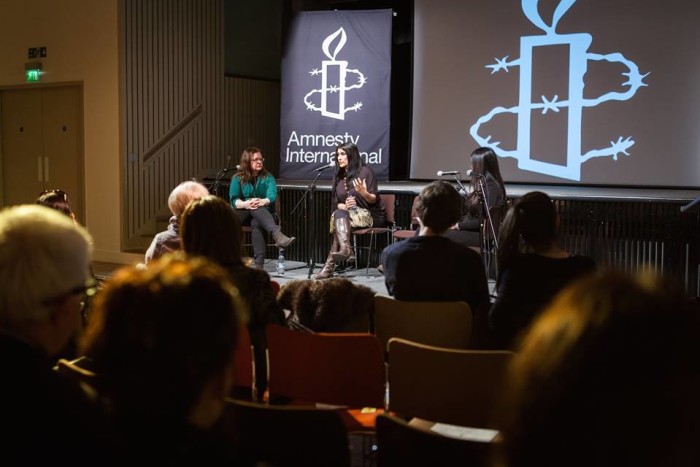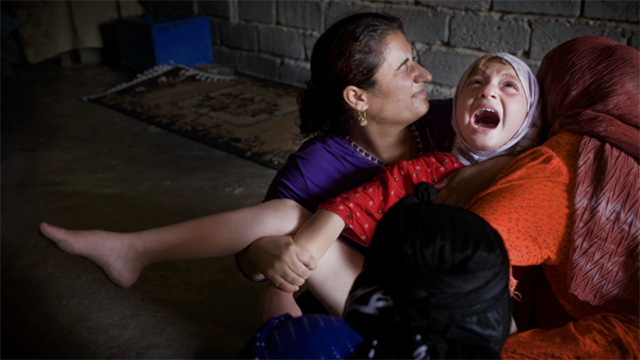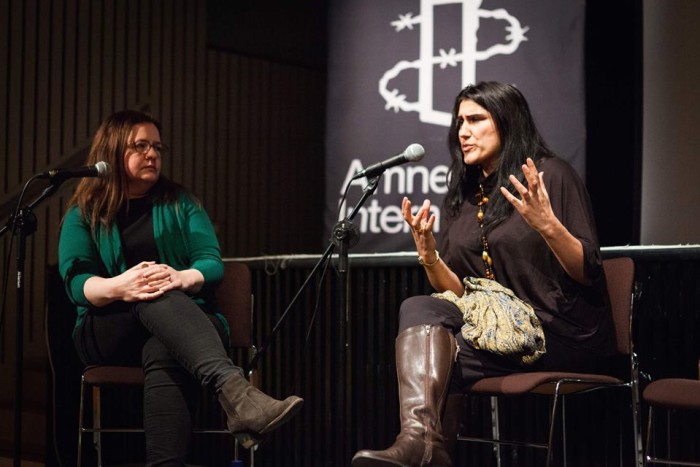Honor Diaries: Why Culture is No Excuse for Abuse
On the 28th of January 2016, I attended Amnesty International’s Women’s Action Network screening of the Honor Diaries, a film that aims to shed light on the plight of women, often, but not exclusively in Muslim-majority societies, providing a healthy, open dialogue that transcends faith, creed, race and borders. The main topics explored are forced marriage and FGM, which is often a precursor for child marriage.
It’s difficult to write about these subjects as I have neither experienced living with honour codes within my family or been subjected to the horrors of female genital mutilation (FGM). However, within the context of globalization, there is no ‘us’ and ‘them’.
Not talking about these issues is to turn a blind eye to one of the biggest epidemics of human rights violations in the world today. By not speaking we are failing victims of abuse.
So here I am, hoping that in my own small way I can broach this difficult subject matter with you, open discussion and rally alongside the chorus of women who are already lighting the way with their bravery and conviction…
(Photo by Samia Meah)
A Question of Honour
As the title suggests, Honor Diaries, explores the concept of honour and its implications on women in families that abide by the honour system. Often, family honour is complex and is tied to a woman’s behaviour and sexuality. Because of this, the need to control her and all she does is paramount to the rest of the family’s social standing.
One of the points made in the discussion of the film was that the main perpetrators were often other female members of the family. It’s also important to not remove men, and male victims, from this discourse, although the central focus is on women as the greater body of victims.
How do you handicap any large group of people? You remove their rights, you deny them education and you strip them of their authority and power.
The systematic abuse of women globally and domestically needs to be addressed if we are to embrace and thrive as a multicultural society. A part of this, as the film points out, needs to be in facilitating discussion about gender apartheid and what we can do to help.
According to the Home Office, approximately 8,000 forced marriages happen every year in the UK.
And just so we are clear, forced marriage is illegal.
And what of FGM?
FGM is an extremely painful and traumatic procedure in which the genitals of the female are cut. Often the clitoris is completely removed, labia cut and vagina sown shut – leaving a small gap to discharge urine and menstrual fluid.
(Image via)
This has been known to happen to baby girls as young as a week old. The physical after-effects include bleeding, infection, infertility and, in most tragic cases, death. Not to mention the psychological and emotional trauma.
According to the UN, 125 million girls have undergone the procedure.
In the UK, FGM is illegal, so often procedures are ‘under the table’ in unhygienic, unsanitary conditions. It costs extra to have a new blade.
Talking About It
After the screening, Jasvinder Sanghera, director of Karma Nirvana, a charity that helps young men and woman who are victims of honour abuse and forced marriage, explained the need for greater education and awareness from the wider British public.
Jasvinder’s own story is one of defiance, bravery and empowerment, when at 16 she ran away from home to escape her own forced marriage. Although her lobbying has had a profound impact on government legislation, she revealed that only three out of 44 police forces were readily prepared to deal with FGM and forced marriage despite the clear guidelines made available.
‘Cultural acceptance does not mean accepting the unacceptable’
Jasvinder Sanghera, Director of Karma Nirvana
Political Correctness and the Fear of Challenging Culture
There seems to be a grey area when it comes to calling into question the behaviour of a culture that is not our own. The fear of being branded a racist and the need to uphold political correctness can silence those who are able to help.
From school teachers accepting the disappearance of young girls in their class, putting it down to ‘cultural differences’, to the Rotherham scandal and recent Cologne attacks, the inability to intervene because of the fear of being branded ‘racist’ or ‘Islamaphobe’ fails the victim.
‘Being called a racist is not going to kill you, but not being called a racist may cause someone else’s life to go…’
Raheel Raza, President Council of Muslims Face Tomorrow
The message expressed by activists is not to be afraid to help someone in need. By expressing concern or seeking advice about a culture with which you are not familiar, is not an attack on faith or race, it’s about upholding justice and human rights.
‘I find it racist that I am not offered the same level of protection as my white counterparts.’
Jasvinder Sanghera, Director of Karma Nirvana
(Photo by Samia Meah)
I would encourage you to open your hearts and your ears to those women and men, our neighbours, our sisters, our classmates, our colleagues, our friends… who are affected by FGM and forced marriage. Right now, I am reminded of the words of Martin Luther King: ‘In the end, we will remember not the words of our enemies, but the silence of our friends’. Culture is no excuse for abuse.
How can we help victims?
Education
Train your staff. Take the discussion into classrooms. Hold your own screening of the Honor Diaries. Self-educate.
Many victims are not even aware of the support available to them. Through education you are empowering them.
Read the Government Guidelines on Forced Marriage.
Discussion
Talk and facilitate discussion by creating opportunities for people to share their personal stories and experience. Whether it be a coffee-meet or a writing a blog, discussion is what will break down the taboo.
If you have not experienced these violations first hand you may wish to what is available to you to create a platform for those who have. Give someone else the stage to share their personal experience.
Campaigns
Get behind grassroots campaigns and write to government bodies.
Ways you can help a victim?
1. Don’t be afraid of calling into question potential signs of abuse.
2. Listen.
3. Do not contact family of victim. When it comes to honour abuse, family are more often then not the main perpetrators, so it’s vital that you seek professional advice from either the authorities or by contacting Karma Nirvana and speaking to one of their trained advisors.
4. Give them Karma Nirvana’s Helpline: 0800 5999274 so they can get support and advice.
For more information visit the Karma Nirvana website: www.karmanirvana.org.uk.
Amnesty International Screening Photos by Samia Meah Photography: www.samiameahphotography.com
If this article was of interest, why not check out ‘On Being a Female Traveller in India’?
Tags: abuse victims Amnesty International forced marriage Honor Diaries Karma Nirvana
Categories: Empowerment: Man! I feel Like a Woman! Fire me up baby! Wise up! Yazmin Joy


